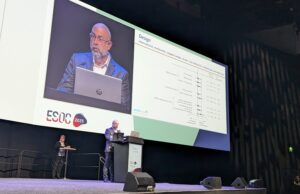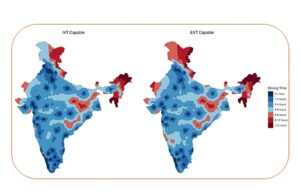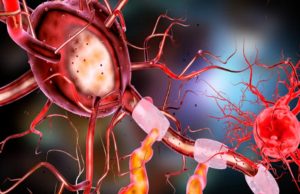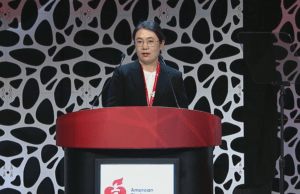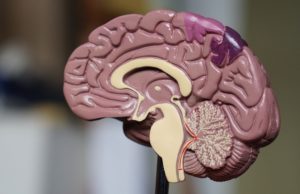Tag: IVT
Randomised trial results suggest tenecteplase’s late-window benefits do not extend to...
While new data have provided solid evidence on tenecteplase’s benefits in non-large vessel occlusion (LVO) ischaemic stroke patients presenting within 24 hours from symptom...
Tenecteplase becomes first new stroke medicine to gain Health Canada approval...
Hoffmann-La Roche (Roche Canada) announced this week that Health Canada has granted market authorisation for its TNKase brand of tenecteplase—a thrombolytic agent—in the treatment...
Real-world study shows marked EVT uptick and reduced delays with Brainomix...
Brainomix has announced the publication of a prospective real-world study demonstrating that its artificial intelligence (AI) imaging platform, Brainomix 360 Stroke, significantly increased rates...
CATALYST-TNK interim analysis indicates non-inferiority of tenecteplase versus alteplase in ischaemic...
Tenecteplase appears to be a safe and effective alternative to alteplase in the treatment of acute ischaemic stroke within 4.5 hours of symptom onset,...
Leading US media outlet recognises timely thrombolytics within stroke hospital ratings...
US News and World Report, a leading media outlet in the USA, has added a treatment-based measure from the American Heart Association’s (AHA) Get...
Less frequent stroke monitoring is safe, effective and can free up...
Halving the frequency with which vital signs and neurological function are checked in low-risk patients after treatment for acute ischaemic stroke does not compromise...
Alteplase may be effective up to 24 hours after initial stroke...
The clot-dissolving medication alteplase can improve stroke patients’ recovery by more than 50% when given up to 24 hours after the beginning of an ischaemic...
“Stark” regional disparities in accessing stroke treatments exist across India, analysis...
A comprehensive, geospatial analysis of acute ischaemic stroke care in India has identified “critical disparities” in access to life-saving reperfusion treatments, revealing that only...
ESO taskforce provides forecast for European launch of stroke thrombolysis drugs
The European Stroke Organisation (ESO) Executive Committee’s Thrombolysis Taskforce has provided “important updates” regarding the security of supply for Metalyse (tenecteplase) and Actilyse (alteplase)...
Thrombolysis appears less effective in tandem-lesion stroke patients presenting directly to...
Intravenous thrombolysis (IVT) prior to a mechanical thrombectomy procedure appears to be less effective in ischaemic stroke patients with carotid-artery tandem lesions, as compared...
Varied tenecteplase data may provide clarity on the drug’s exact role...
This year’s European Stroke Organisation Conference (ESOC; 15–17 May, Basel, Switzerland) saw a plethora of data on intravenous tenecteplase—from studies spanning Australia, Canada, China,...
US study finds link between social factors and intravenous thrombolysis rate
For ischaemic stroke patients, social factors like education, neighbourhood and employment may be linked to whether they receive treatment with intravenous, clot-busting drugs, according...
Reteplase demonstrates superiority to alteplase in acute ischaemic stroke trial
Reteplase has demonstrated potential as an alternative to alteplase in patients requiring intravenous thrombolysis (IVT) to treat acute ischaemic stroke, as per the findings...
Halted MOST trial finds no benefit when adding blood thinners to...
Giving blood thinners in addition to clot-busting medications does not improve ischaemic stroke patients’ outcomes at 90 days, according to findings from the MOST trial, which...
Basking Biosciences closes US$55 million financing to further reversible stroke thrombolytic
Basking Biosciences has announced the close of US$55 million in financing, which will be used to accelerate clinical development of its novel thrombolytic therapy...
Tenecteplase deemed a safe and feasible adjunct to thrombectomy in ALLY...
Intra-arterial tenecteplase has demonstrated potential as a safe and feasible adjunct to mechanical thrombectomy in patients with acute ischaemic stroke caused by a distal...
Tenecteplase deemed non-inferior to alteplase in suitable ischaemic stroke patients
The ATTEST-2 trial has found that tenecteplase was non-inferior to alteplase, the more established of the two thrombolytic agents, in suitable acute ischaemic stroke...
Latest TRIAGE-STROKE and RACECAT data put the brakes on alternative stroke...
Recently published data from two large randomised controlled trials (RCTs) have indicated there may be minimal benefits—or even negative effects—associated with bypassing local or...
‘Minimal differences’ in clinical outcomes between stroke thrombectomy with or without...
There are likely to be minimal differences in clinical outcomes between acute stroke patients presenting directly to endovascular treatment centres who undergo mechanical thrombectomy...
IRIS data shed new light on how treatment delays may impact...
A collaboration analysing several major clinical trials has found that endovascular therapy (EVT) plus intravenous thrombolysis (IVT) is likely to be superior to EVT...
New data represent “fantastic news” in IVT despite lack of efficacy...
Results from the TIMELESS trial represent “fantastic news” on the safety of intravenous tenecteplase in selected late-window stroke patients, despite the drug failing to...
Tenecteplase linked to higher haemorrhage rates than alteplase in no-thrombectomy stroke...
Intravenous tenecteplase was associated with a higher rate of intracranial haemorrhage (ICH), as compared to alteplase, in a recent analysis of real-world data from...
Dual antiplatelet therapy comparable to thrombolysis in minor, non-disabling ischaemic stroke
Among Chinese patients with minor, non-disabling stroke presenting <4.5 hours from symptom onset, dual antiplatelet therapy (DAPT) has been found to be non-inferior to...
Chinese TRACE II trial deems tenecteplase non-inferior to alteplase in ischaemic...
New data on intravenous tenecteplase indicate that it can achieve comparable efficacy and safety to alteplase in treating stroke—and, as such, may be used...
Prior thrombolysis improves outcomes for M2 occlusion stroke patients undergoing thrombectomy
Intravenous thrombolysis (IVT) prior to a mechanical thrombectomy procedure could result in better functional outcomes than thrombectomy alone in stroke patients with M2 occlusions,...
Atrial fibrillation does not modify treatment effect of bridging thrombolysis, study...
An international study conducted by Leonard Yeo (National University Hospital, Singapore) and colleagues has found that the presence of atrial fibrillation does not modify...
Interventions—not neuroimaging—found to be driving increased ischaemic stroke costs
A study by the Neiman Health Policy Institute (Reston, USA) has found that the costs of an ischaemic stroke episode increased by 4.9% from...
European Stroke Organisation taskforce delivers update on thrombolytic drug shortages
The thrombolysis taskforce of the European Stroke Organisation (ESO) executive committee has provided an update on current shortages of alteplase and tenecteplase, detailing outcomes...
Direct thrombectomy fails to show non-inferiority versus bridging therapy in early...
The international DIRECT-SAFE trial has produced results indicating that intravenous thrombolysis (IVT) plus mechanical thrombectomy—commonly referred to as bridging therapy—should continue to be recommended...
World Stroke Congress bolsters evidence on optimal thrombectomy and thrombolysis approaches
While much-needed improvements to existing triage and transport protocols for acute stroke patients were a leading topic of focus on World Stroke Day (29...
Tenecteplase offers “incredible opportunity” to optimise thrombolytic stroke treatments
Earlier this year, results from the Canadian AcT (Alteplase compared to tenecteplase) randomised controlled trial (RCT) were delivered for the first time at the...
US study bolsters recent evidence supporting tenecteplase in ischaemic stroke care
Tenecteplase, a newer-generation intravenous thrombolysis (IVT) drug, has outperformed the traditional treatment (alteplase) for ischaemic strokes in several key areas, demonstrating better health outcomes...
SWIFT-DIRECT sub-analysis finds effect of bridging thrombolysis is preserved over time
A recent sub-analysis of the SWIFT-DIRECT trial, which is published in the Journal of NeuroInterventional Surgery (JNIS), has found “no evidence” that the effect...
Study findings encourage direct EVT approaches over bridging thrombolysis in select...
A retrospective study involving more than 200 patients has indicated that ‘bridging thrombolysis’ may not be associated with improved functional outcomes in stroke patients...
Benefits of EVT for basilar artery occlusion “cannot be excluded” following...
A randomised controlled trial (RCT) involving 300 patients found that functional outcomes among basilar artery occlusion stroke patients “did not differ significantly” with endovascular...
ISC News: Non-inferiority for direct mechanical thrombectomy “could not be proven”
Skipping IV thrombolysis and using mechanical clot removal alone for stroke was not shown to be non-inferior compared to the combination of both treatments,...
Brainomix AI software improves stroke treatment rates at Budapest University Hospital
On the 8th of November 2019, during a symposium at the annual meeting of the Hungarian Neuroradiology Society (MNRT) in Mátraháza, Hungary, Bence Gunda...
MR CLEAN II trials are expanding into France
The recent European Society of Minimally Invasive Neurological Therapy (ESMINT; 4–6 September, Nice, France) meeting saw Adriaan C G M van Es of Erasmus...
Randomised controlled trial needed to determine safety of direct mechanical thrombectomy...
The meta-analysis trial showed no evidence that rates of successful reperfusion differed in direct mechanical thombectomy and intravenous thrombolysis prior to mechanical thrombectomy.
In contrast...






